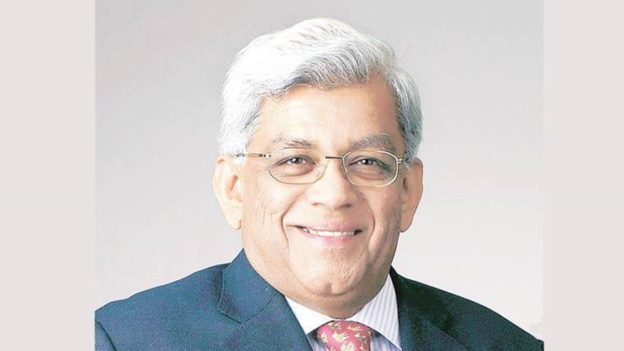Despite the global turmoil, India has been in the spotlight for being among the fastest growing major economies, helped by a strong consumption story, HDFC chairman Deepak Parekh said on Saturday.
Despite the global turmoil, India has been in the spotlight for being among the fastest growing major economies, helped by a strong consumption story, HDFC chairman Deepak Parekh said on Saturday.
India is not immune to global disruptions, so some slowdown in growth is inevitable. However, since the country is a domestic, consumption-based economy, it is less dependent on the global economy compared to countries that rely heavily on exports, he added.
“As a country, we are fortunate to see more tailwinds than headwinds. What is working well for India is the fact that we have political stability and I don’t see this being disrupted in 2024 either,” Parekh said at an event here.
Listing out some significant advantages of India, he said the Indian banking and financial system is now in a much stronger position and is well-capitalised, the non-performing loans are now much lower and the system is strongly regulated.
Further, the government is pulling all its weight to position the country as a global manufacturing hub, and has aligned itself to the goals of decarbonising the Indian economy in an orderly manner.
“Urbanisation in India is an irreversible trend. Currently 32% of the population resides in cities and this is expected to be 40% by 2030,” he added.
The runway for mortgage finance in India is immense as the mortgage to gross domestic product (GDP) ratio in the country is just 11%, which is very low compared to other peer economies like China, Malaysia, and Singapore and significantly lower than western world where the ratio is upwards of 60-90%.
He pointed out a recent forecast that the Indian real estate market is likely to touch $1 trillion by 2030. India still has a huge housing shortage estimated at over 29 million units. The government has been supporting housing, especially through its Pradhan Mantri Awas Yojana and the Credit Linked Subsidy Scheme, or the CLSS, which came to an end last year, was a game changer, especially for the economically weaker sections and low-income groups.
Also read: Knitwear exports from Tirupur hit, outlook subdued
However, the withdrawal of the CLSS and concessional stamp duties in certain states coinciding with the uncertainty on the interest rate trajectory has had some dampening impact on housing, especially for the low-income segments.
“I still maintain that affordability has not been eroded as far as housing is concerned. There are a lot of screaming headlines stating how the interest rate hikes have led to sharp increases in equated monthly installments (EMIs) or very stretched tenors. Here it is important to recognise that it is the primary responsibility of a lender to ensure that a customer is not over extended while taking a home loan,” Parekh said.
The more important driving point is that a home loan is generally for a long tenor and over this period, there will be both, upward and downward interest rate cycles.
India is lucky that its mortgages are not underwater like parts of the western world where the mortgage loan in itself is higher than the value of the property, he added.
He advised developers in tier-II and tier-III cities that the Indian real estate market needs a lot more of affordable and mid-income housing stock. So, developers should not be too ambitious in trying to launch too many projects at one time.
They should look to keep governance practices at the core of their investment decisions and build sustainably.
https://www.financialexpress.com/economy/political-stability-keeping-india-ahead-says-deepak-parekh/3058552/





